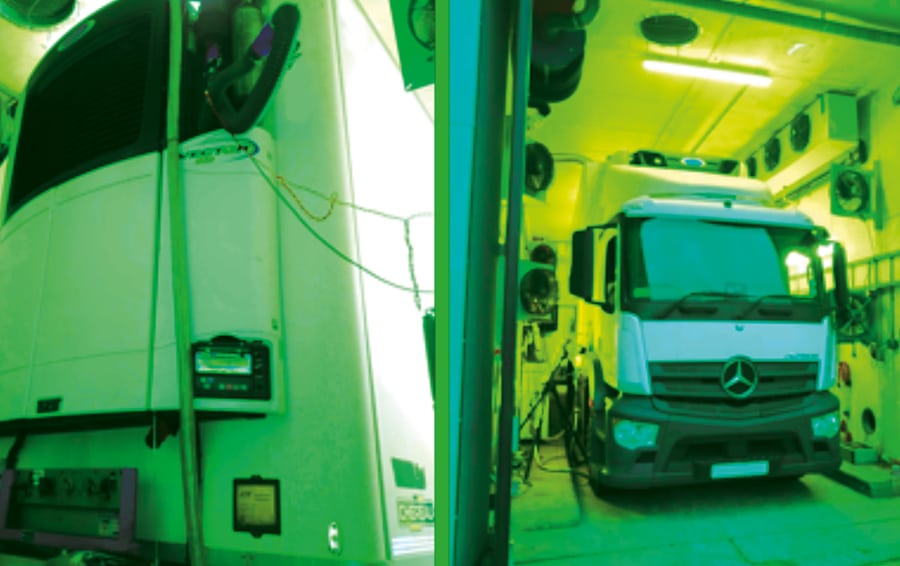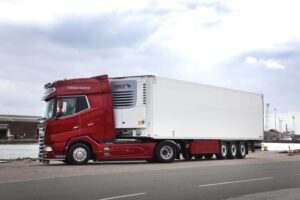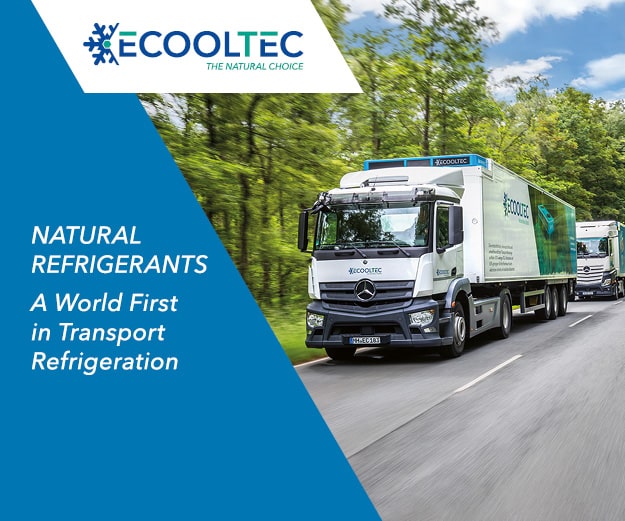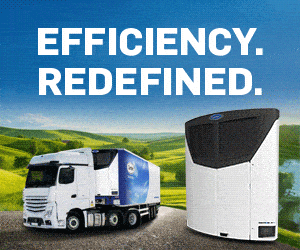New research recently published by Zemo Partnership, shows that diesel-powered auxiliary transport refrigeration units (auxTRUs) used in the cold chain distribution system make a significant contribution to transport-related[1] greenhouse gas emissions and have an even greater impact on polluting emissions of NOx and particles which have directly damaging health effects.
In order to understand the impacts of diesel auxTRUs on climate-changing emissions and air quality and devise initiatives and standards to reduce those impacts, baseline data is needed.
The latest study, funded by Transport Scotland[2], builds on earlier work (2019[3]) which developed and validated an initial emissions test protocol for auxiliary TRUs. (Refrigeration units powered directly from the vehicle’s main engine, commonly used by smaller HGVs and vans were not considered here.)
Two representative, conventional diesel auxiliary TRUs were used in the study and tests were carried out for a range of operating scenarios, designed to mirror typical usage patterns.
Throughout the tests, measurements were taken of the auxiliary TRU’s fuel consumption, internal and external temperatures as well as emissions of oxides of nitrogen (NOx) and particulates.
The study also used official data to estimate the number of diesel-powered auxiliary TRU systems in Scotland and found that 4-6% of the 37,000 HGVs registered in the country may be fitted with a separate auxTRU unit or frequently pull trailers so fitted.
Estimates derived in the study found that these systems contribute an additional 1-2% GHG emissions to current official figures[4] reported from all the 37,000 HGV propulsion engines operating in Scotland. Moreover, the study showed that the units contribute an additional 5-14% NOx and 9-26% particle mass emissions to the respective official emissions baselines for HGVs working in Scotland.
Brian Robinson, Zemo’s study author, said: “This research has very much confirmed our preliminary findings from 2019 and shone a light on the likely scale of the environmental impacts of diesel auxiliary TRUs. We now need to work at pace with the cold-chain industry and government to encourage the uptake of cleaner, greener solutions. ”
Using this latest data and following a specific request in the Transport Decarbonisation Plan, Zemo will be hosting a workshop to bring the zero emission options to the table and commence development of an action plan to drive decarbonisation and pollution reduction in this sector.
Transport Scotland said: “This report gives Scottish Ministers further understanding of the level of greenhouse gases emitted by these auxTRUs. Additionally, it aids the overall understanding of how auxiliary diesel engines potentially impact surrounding air quality and helps to overcome the knowledge gap we have in this area.”














